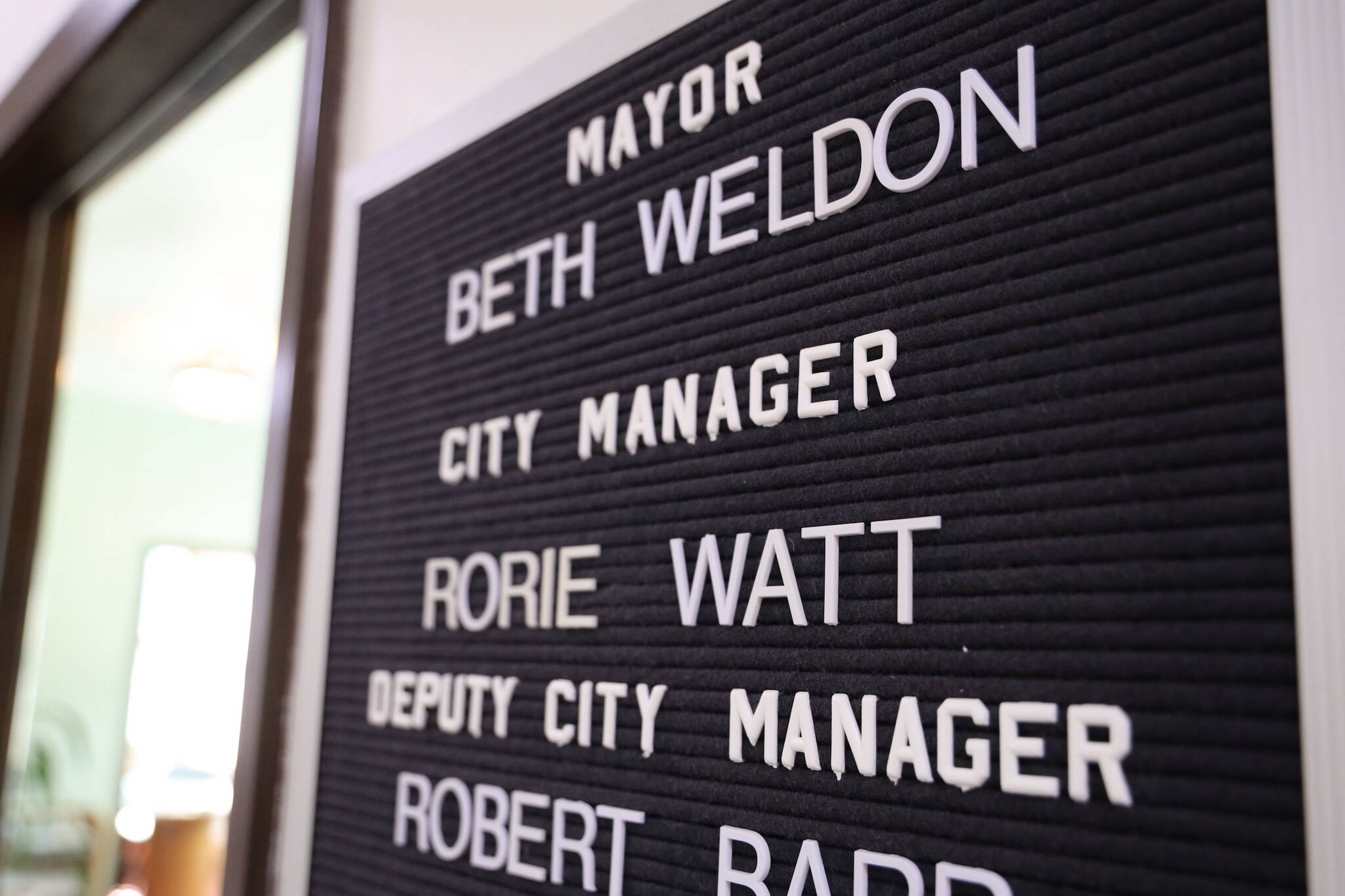With current and projected turnover in city leadership, Juneau citizens might consider new ways to meet the challenges facing the community.
Understanding how these challenges affect Alaskans’ perception of Juneau as the state capital is important. Juneau is a multi-faceted city shaped by tourism, mining, recreation, and a lively arts and culture community. But its core identity as Alaska’s capital city should be foremost in people’s minds.
Juneau City Manager Rorie Watt recently announced his retirement effective Sept. 30. CBJ Treasurer Angie Flick was recently selected to replace outgoing City Finance Director Jeff Rogers on June 30. After a nationwide search, Fred Hauser was hired to replace retiring Juneau School District Superintendent Bridget Weiss on July 1.
While I haven’t always agreed with their policy choices, it’s not helpful to critique out-going holders of these jobs. Serving in high-visibility leadership positions is rarely easy and usually a thankless job. All deserve credit for their public service, and dedication to the city and school district.
But, anytime leadership changes there is an opportunity to re-examine best practices, priorities and goals.
As a 25-plus year member of the Alaska Committee I have seen a diminishing public awareness of how local actions affect statewide opinions of Juneau as a capital city.
While our economy is finally emerging from a pandemic with schools back in session and the future looks brighter, many challenges remain.
At the top of the list of challenges facing Juneau city leaders will be:
■ Making Juneau a more affordable place to live.
■ Improving student achievement and educational choices in Juneau schools.
■ As a by-product, making Juneau a better and more welcoming capital city.
These challenges deserve equal attention. They are largely not “money” problems. If they were we would have solved them long ago.
Affordability and availability of housing is a multi-layered issue. It’s more than just making more land available, subsidizing projects, or hiring a housing director. Bureaucratic processes, over-regulation, restrictive zoning and a “not-in-my-backyard attitude” can stymie even the best of projects.
Property taxes are also having a dramatic impact on housing affordability. With a 20% increase in Juneau property assessments over several years without a corresponding reduction in the millage rate, property owners and renters have been negatively impacted. Legislators and private employers are struggling to find housing for their staff.
There’s no reason affordability, education and capital city goals cannot be complementary, or even work in tandem. For example, there is a continuing shortage of workers in Juneau. School and private sector partnerships can help cultivate employment interests, good work habits and customer service skills critical to being a good host city.
Student proficiency in math, science and language arts should remain a primary focus. But not everyone is cut out for a college degree. Can we better prepare students for our specific local workforce? Can we partner with the tourism, mining and retail industries to grow bookkeepers, boat captains, pilots, mining technicians and diesel mechanics?
If educational improvements are only seen through the lens of more funding, conflict will continue. As school populations decline it’s clearly evident that school building consolidations are necessary and must be considered.
I hope that in the process of interviewing prospective candidates for the superintendent position, our school district clearly articulated its facility and enrollment challenges. In years past many legislators chose to bring their families to Juneau and enroll them in our schools during legislative session. That’s a worthy goal for our school district to consider – a “big picture” capital city perspective.
Juneau’s cost of living and the quality of our schools have an outsized influence on whether people choose to live here, work here, or stay here. If they don’t we suffer economically, employee recruitment issues will increase, and state and federal government offices will be more likely to move. More significantly, Juneau will be perceived as a poor steward of Alaska’s capital.
Will city leaders accept and promote our capital city’s larger responsibility to all Alaskans and the notion that nothing is “off the table” when considering how best to move forward?
• After retiring as the senior vice president in charge of business banking for KeyBank in Alaska, Win Gruening became a regular Opinion Page columnist for the Juneau Empire. He was born and raised in Juneau and graduated from the U.S. Air Force Academy in 1970. He is involved in various local and statewide organizations. Columns, My Turns and Letters to the Editor represent the view of the author, not the view of the Juneau Empire. Have something to say? Here’s how to submit a My Turn or letter.

